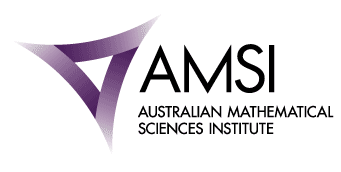Content
Boolean Algebra Again?
There has always been a hint in the air that what we have been doing with propositions mirrors what we did with Boolean algebras. Let's see what evidence we have so far on this connection.
- Propositional logic is based on 0 and 1
- There are operations $p + q$, $pq$ and $p'$
- $p + p' = 1; (p')' = p; (pq)'= p'+ q'; $and $(p + q)'= p'q'$;
All of these appear in Boolean algebra. To be sure that we have a Boolean algebra all we have to do is to make sure that the axioms of Boolean algebra hold for propositions (page 16). Let's look at a few for a start.
-
Axiom 1
$B$ contains at least two elements. Propositional logic contains at least true and false. These hover in the background just as on and off do for switching circuits. -
Axiom 2
$B$ is closed under + and $\times$. That is for all $x$ and $y$ in $B, x + y$ and $x \times y$ are in $B$. For propositions $p$ and $q$, $p + q$ and $ pq$ are both propositions. -
Axiom 3
+ and $ \times$ are commutative. That is for all $x$ and $y$ in $B, x + y = y + x$ and $x \times y = y \times x$. So we have to show that $p + q = q + p$ and $pq = qp$ are tautologies. We do the first in Table 9.
| $p$ | $q$ | $p+q$ | $p+q$ |
| 0 | 0 | 0 | 0 |
| 0 | 1 | 1 | 1 |
| 1 | 0 | 1 | 1 |
| 1 | 1 | 1 | 1 |
From here we can see that $(p + q) \to (q + p) $ and $(q + p) \to(p + q)$. So + (either or) in propositional logic are the same.
Questions
- Prove that $pq = qp$.
- Prove that the remaining axioms are also true.
